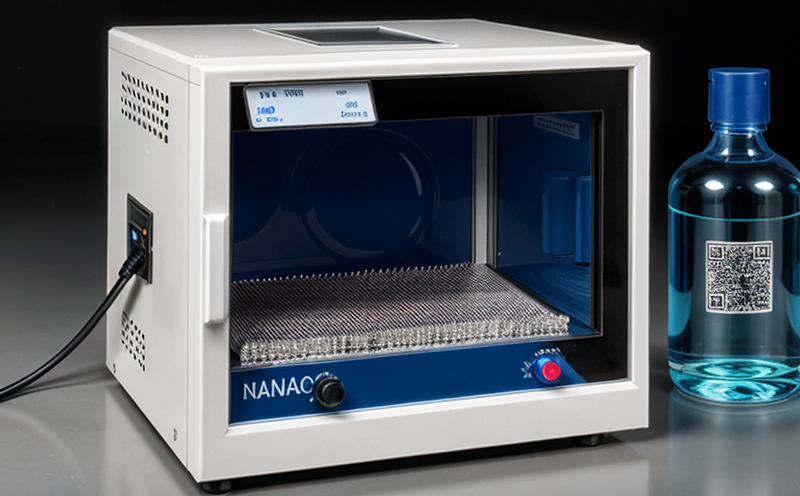GB T 35020 Nanomaterial Toxicological Testing
The GB/T 35020 standard provides a comprehensive framework for conducting toxicological testing of nanomaterials in China. This service focuses on assessing the potential health impacts and environmental risks associated with these materials, which are increasingly used in various sectors including electronics, medicine, and consumer goods.
Understanding the behavior of nanoparticles at the molecular level is crucial for ensuring that their use does not lead to unintended adverse effects. GB/T 35020 outlines specific protocols designed to capture the unique properties of nanomaterials during testing, thereby providing reliable data essential for regulatory compliance and product safety.
The standard covers a range of tests aimed at evaluating different aspects of toxicity:
- Acute toxicity studies
- Mutagenicity assessments
- Reproductive toxicity evaluations
- Inhalation toxicity analyses
- Skin and eye irritation tests
- Toxicokinetic profiling
The testing procedures are meticulously designed to account for the distinct characteristics of nanomaterials, such as their large surface area and high reactivity. These features can significantly influence how these materials interact with biological systems.
Preparation of samples is critical in ensuring accurate results. This involves dispersing the nanomaterials into appropriate solvents or matrices that mimic real-world exposure scenarios. The standard specifies detailed methods for sample preparation to ensure uniformity and reproducibility.
Instrumentation plays a pivotal role in GB/T 35020. Key equipment includes scanning electron microscopes (SEM) and transmission electron microscopes (TEM), which are used to characterize the morphology and size distribution of nanoparticles. Additionally, in vitro bioassays using cell lines are employed to assess cytotoxicity.
Reporting is structured to provide a clear picture of the nanomaterial's potential risks. This includes quantitative data on toxicity levels alongside qualitative insights into how different factors influence these outcomes. The report serves as an essential document for decision-makers in the industry, helping them navigate regulatory requirements and ensure product safety.
The GB/T 35020 protocol ensures that all tests are conducted under controlled conditions to minimize variability. This approach enhances the reliability of the results, making it easier for stakeholders to interpret findings accurately.
| Sample Preparation | Instrumentation | Data Analysis |
|---|---|---|
| Dispersing nanomaterials in solvents | SEM and TEM for morphology analysis | Quantitative toxicity assessments |
| Ensuring uniformity of samples | In vitro bioassays with cell lines | Qualitative insights into risk factors |
The implementation of GB/T 35020 is vital for industries dealing with nanomaterials, ensuring that products meet stringent safety standards. Compliance with this standard not only protects public health but also fosters trust among consumers and stakeholders.
Benefits
- Promotes compliance with national regulations
- Enhances product safety through rigorous testing
- Supports informed decision-making in R&D processes
- Fosters trust among stakeholders and consumers
- Ensures consistent quality across production batches
- Aids in the development of safer consumer products
- Facilitates easier export of nanomaterial-based products internationally
Industry Applications
| Sector | Application |
|---|---|
| Electronics | Testing semiconductors and circuit boards for nanoparticle components |
| Medicine | Evaluating nanoparticles used in drug delivery systems |
| Consumer Goods | Determining safety of nanomaterials in cosmetics and food packaging |
| Environmental Protection | Assessing the environmental impact of nanoparticle emissions |
The GB/T 35020 service is widely applicable across these sectors, providing critical insights that are essential for innovation and safety.
International Acceptance and Recognition
- ISO 17289-1 provides a similar framework for nanomaterials testing but focuses more on characterization than toxicity
- ASTM E2969 is another international standard that overlaps with GB/T 35020 in terms of scope and application
- The Chinese standard has gained recognition globally, particularly among companies with operations or supply chains in China
- Compliance with this standard can help streamline the process for exporting nanomaterials to countries where it is widely accepted
The GB/T 35020 service ensures that clients are prepared for international markets and regulatory requirements.





